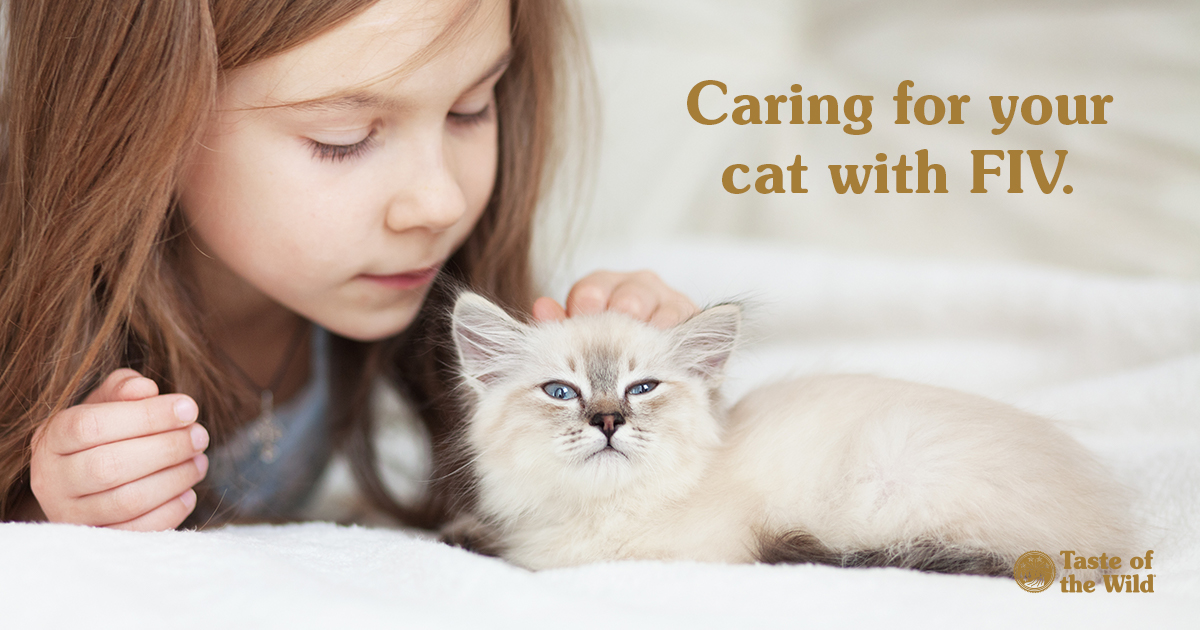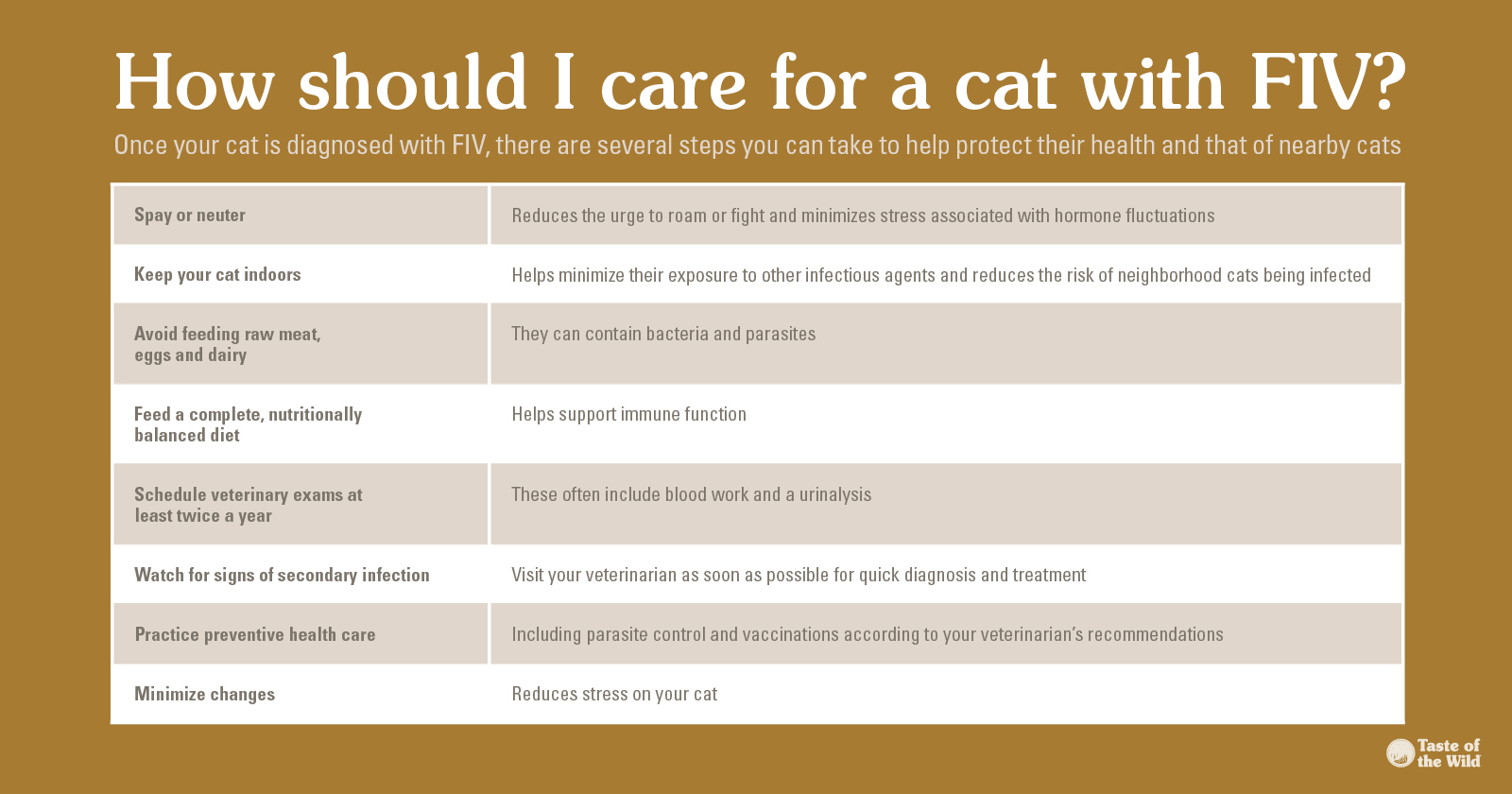
Is a diagnosis of feline immunodeficiency virus (FIV) serious? Yes. Does it mean the end of the world? No. In fact, cats with FIV often live for many years with few or no serious signs. Here’s what you need to know if your cat has FIV.
What is FIV?
Like the related human immunodeficiency virus (HIV), FIV can weaken a cat’s immune system, making it harder to fight off infections. Although there’s no cure for FIV, with regular preventive care and timely disease treatment, many cats can thrive for years without any major problems.
How was my cat infected?
Typically, it happens during a catfight, when an FIV-positive cat bites another cat and transfers the virus in saliva or blood. As a result, outdoor cats, especially non-neutered males who are more prone to fighting, are more likely to get FIV than indoor cats.
Less commonly, kittens can become infected while in the uterus or during nursing. Rarely, the virus may be transferred through blood transfusions or through saliva on a bowl or during grooming. FIV cannot be transmitted to humans, dogs or pets other than cats.
What effect does FIV have on my cat?
A few weeks after the initial infection, your cat may experience a fever and lymph node enlargement, but chances are, you won’t even notice. Most cats then go through a stage — often lasting many years — when they seem extremely healthy, exhibiting few or no signs. During this time, the virus continues to multiply until eventually the immune system is so compromised that the cat is more vulnerable to disease, including cancer or neurological conditions such as seizures.
What are the signs of FIV?
Typically, the signs are associated with secondary infections rather than the virus itself. Signs can wax and wane and may include:
- Fever
- Enlarged lymph nodes
- Red, inflamed gums and mouth
- Respiratory infections
- Urinary tract infections
- Skin infections
- Diarrhea
- Eye inflammation
- Loss of appetite
- Weight loss
- Seizures
How should I care for a cat with FIV?

What about other cats in my household?
If your FIV-positive cat gets along and isn’t prone to fighting, there’s a very low risk of transmission to other household cats. If they do fight on occasion, it might be best to separate them, if possible.
Although there is a vaccine for FIV, it’s somewhat controversial. Since there are many strains of the virus, vaccination doesn’t guarantee protection. And because routine FIV tests check for antibodies to the virus rather than the virus itself, vaccinated cats may test positive and require advanced testing to differentiate between vaccination and infection.
Your veterinarian can provide you with guidance on how to best care for your FIV-positive cat as well as other cats in your household.
RESOURCE: FIV Infectious Diseases of the Dog and Cat
The information in this blog has been developed with our veterinarian and is designed to help educate pet parents. If you have questions or concerns about your pet's health or nutrition, please talk with your veterinarian.
